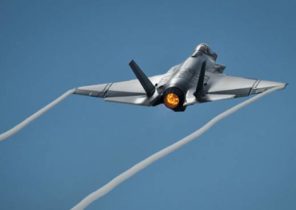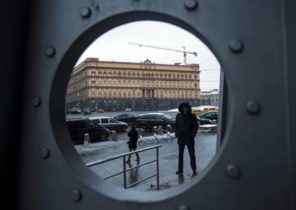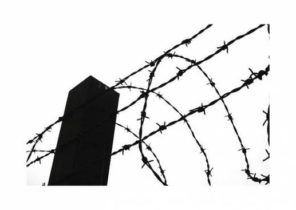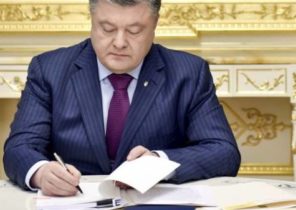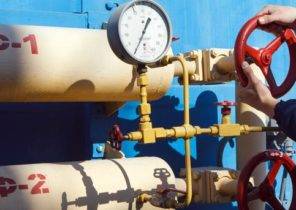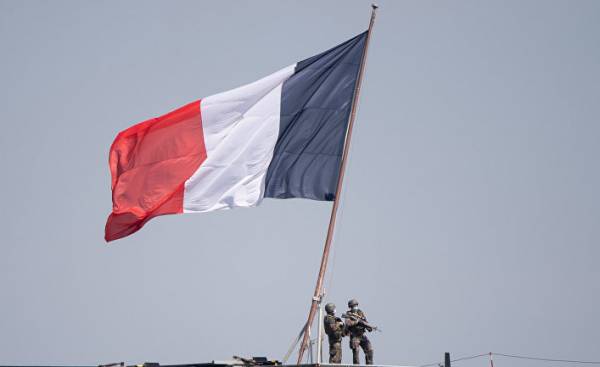
“Atlantico” On the background of the crisis сovid-19 French citizens realized the fragility of their political model that many considered better than in other European countries. How might the awareness of this fact by public opinion? Can you compare this injury with the terrorist attacks of 2015 and the economic crisis of 2008?
Raul magni Berton: Yes, all Europeans are seriously affected by this crisis, but France is among the countries that had the hardest. In all countries the crises (the present is no exception) usually contribute to the growth of the confidence of the people. This is manifested in the trust of each other, as well as government and institutions. Thus, all governments in varying degrees, benefited from the crisis in terms of trust and popularity. The French government has received very small dividends, and after the first positive changes began to accumulate criticism. Trust and solidarity will grow, but in France it is not clear whether we are talking about solidarity with the government or against it.
In any case, for better understanding of the situation must look to what is happening in neighboring countries, not to consider the implications of past crises in France. Because differences between countries are much smaller than between the crises. The economic crisis has been less extensive and have affected people unequally. Not everyone was in the same boat. He has also strengthened the desire for equality, but this has not led to any concrete steps. The attacks 2015 United people, but then there was the “external enemy”, which gives a great advantage by the government when the question applies not only to domestic policy.
— Up to September 11, the US considered themselves untouchable, but they struck to the heart. Now they saw themselves of the first world power, but was powerless against the pandemic. On what basis America considers itself the greatest power in the world?
Jean-Eric Brana: the Events of 11 September have really become a blow to a country that felt safe from external threats. I lived in the US and could feel the difference in the mood “before” and “after” as a result of extreme shock. The change was sudden, hard and deep.
You can draw an analogy with what is happening today. President trump himself mentions “a period of absolute economic power of America before “they” said that all we need to stop”.
Anyway, the desire for power and, above all, the assertion of this power is peculiar not only to the current President. It relies primarily on objective factors: whether the military sphere, the economy or culture, the United States still has no equal competitor in the world. This superiority in virtually all areas gives them extraordinary flexibility and the ability to steer at their own discretion, even to impose its own rules. Repeatedly raised the issue of the extraterritoriality of American law: for example, Donald trump has banned French companies to trade with Iran and succeeded. It is inconceivable that our President demanded something similar from the Americans to put pressure on some third country for one reason or another.
Thus, the rules of the international game was set in accordance with the wishes of America. As always, there is compensation, which in this case is an effort to maintain peace and balance between countries. American leadership is not established by force or coercion: it is perceived as a necessity in other countries, is based on the legacy of two world wars and the cold war, which, without doubt, won by the Americans.
It reappeared in January this year in Davos, where President trump arrived with a single message: “We are the greatest economic power in the world.” He intended to close the Chapter of the rise of Chinese competitors, which are considered as a serious threat to the United States from the beginning of the century. At that moment he could not imagine that the American colossus feet of clay and precarious health.
André Kaspi: Since the formation of the country, the Americans were confident that play a special role in world history. Their country is different. They received millions of immigrants from Europe (slightly less from Asia and Latin America). They invented the concept of the melting pot. The 2001 attacks have weakened, but not killed the ideology. They are painful for the current pandemic (70 000 dead, according to forecasts, this number is expected to double), but believe that their scientists and laboratories will be able to cope with the virus. This confidence does not mean that the U.S. is ready to cooperate with other Nations, in Europe or beyond. In American society, are still challenging its split causing the problems. It lives in a closed environment. And I am convinced that I will be able to cope with the situation better and faster than the others.
— How will the American public react when they see the scale of such a failure? How will this affect the American identity?
Jean-Eric Brana: it’s still hard to talk about how the country can change and redefine themselves after the crisis. The fact that in the US there is still the height of the pandemic and the death toll is growing every day. The spread of the virus, apparently, slowed down on East and West coast, but come alarming signals of the Central States, where more rural and smaller facilities.
Yes, it is possible to rely on sounding statements or decisions taken, to mark the further retreat of the US from the first plan in the international arena. An example of this can be a crisis with the who and the refusal to participate in the initiative of Emmanuel Macron on the formation of the “Internationale in vaccine development”.
In fact, all this still does not matter: it is too early to draw final conclusions, and the policy may soon change, either because of the decision of the President of trump, or because of the fact that after the November elections, the White house will be replaced by the owner. In this case, I will have to reevaluate everything.
In any case, the US will try to fill the waiting traditional way, that is through total war with the culprits. Americans always adhere to the logic of war between good and evil, and again we will see. Who has become the object of criticism. Now under the gun turned out to be China… Everything that could serve in the fight against evil will help to preserve the essence of American identity, which provides communication between citizens. They all consider themselves Americans because they have shared values that allow them to gather around the flag if necessary. Donald trump with advisers clearly understand this aspect of the problem, and every day called those responsible for the deaths of tens of thousands of compatriots. Repeated statements about the creation of the virus in the laboratory of Wuhan, of course, will create the basis for common sense. And this is only one example, which will become more as necessary.
The fact that you need to deal with feelings of vulnerability, which since 11 September has flooded the country and gave rise to doubt on her. After “return to a strong America,” Trump and Biden need to convince Americans that they can deal with threats in a changed world. Now we are talking not only about physical war, but the invisible risks: chemical, biological and cyber attacks cannot be controlled, and all the power of even a country like the US (with a whopping defense budget is 700 billion dollars) has little to counter a small group of individuals that can destroy anything, anytime, anywhere.
All this raises the question of the implications for American identity, as new threats trigger a desire to isolate oneself in a more calm and easily controlled environment that is not so open towards others. Anyway, while we are only beginning observations.
André Kaspi: I don’t think American society can move away from their internal schisms. Because they are really deep. It is perfectly visible on the example of the ongoing disputes there. In addition, now is the campaign is a key factor of the split. Donald trump embodies half of the society, and the other half is hoping to get rid of the “accidental” President, who, in her opinion, does not reflect the traditional values of the country. Supporters of trump’s not interested in the rest of the world. They defend their ideas about America. Their opponents probably more open to the outside world, but for them to be of primary importance, the idea of America as the bearer of fundamental values of all humanity. And this does not mean that they are ready for real cooperation with others. Both sides in this or me fully aware that the US is now a dangerous enemy, China. In the coming years, we will see a fierce (but hopefully peaceful) struggle between the two powers.
The richest people in the country believe that holding its future through innovation, but now they are not able to find a way out of the crisis. What can you expect from elite?
André Kaspi: the Richest people are not trying to find a way out of the crisis. Their goal is not to lose momentum and profits. Amazon everything is just fine, like Facebook or Microsoft, from Apple — a little worse. Warren Buffett, the billionaire among billionaires, has lost tens of billions. But he still believes that he will be able to quickly recoup losses after the restoration of economic and financial activity. I don’t think rich people looking for a way out of the crisis. They simply seek to survive in it.
They rely on giant enterprises and pursue only one goal — to continue to expand its dominance. Probably only one bill gates, who has gone out of business and has substantial funds, trying to change the world, to achieve new relations in society, to fight poverty. Great program…
— A political path open to French citizens? We go to the Sovietization policy (planning up to collapse) or to a clear diagnosis and national efforts to “restore” the country, as it was in the period of the thirty glorious years?
Raul magni Berton: There are not only these two scenarios, but the Sovietization of course, not an option. It is not excluded trend towards the nationalization of enterprises (this was in the period of the thirty glorious years), but to Sovietization obviously will not come. At the same time, there is a risk of limitation of freedoms. My colleague sébastien Rocher showed that adopted in Europe measures are commensurate with the gravity of the crisis, the government is willing to accept them than others. The French government and the Eastern European countries have shown most of authoritarianism on the continent in combating this crisis. That is, it is difficult to say something definite. For effective recovery, you need a low debt and consensual government. In Germany, Sweden and Switzerland will succeed. France will have more complicated: the government is hated in large parts of the population, and the country is not so easy to borrow. I think the French recovery will not be easy.


